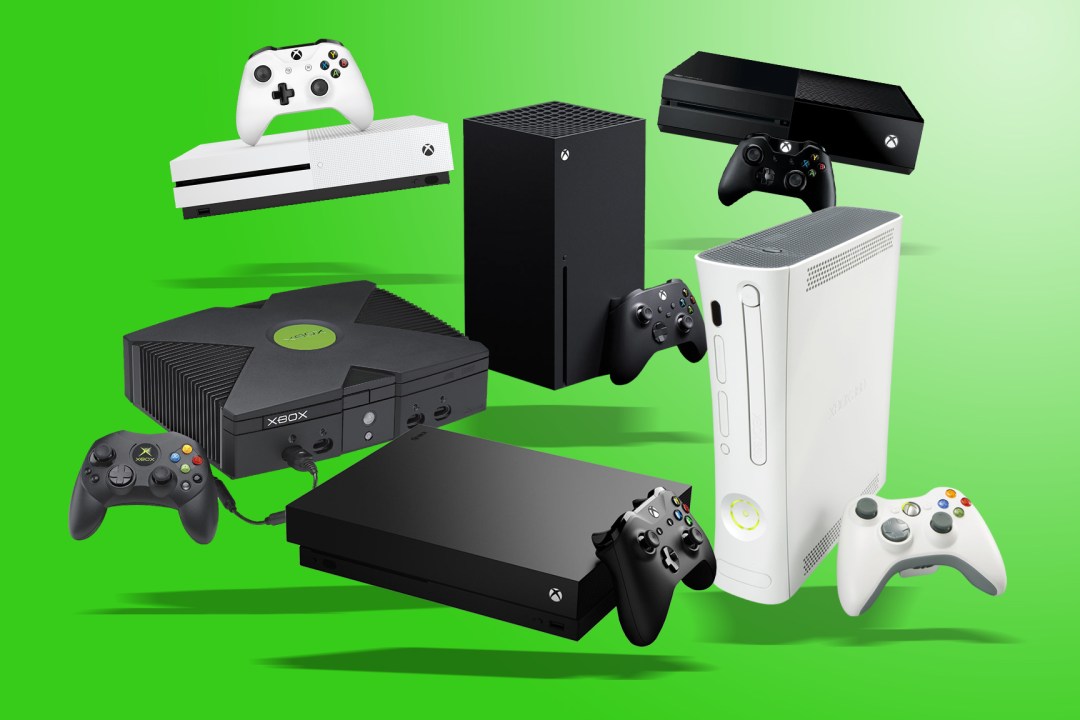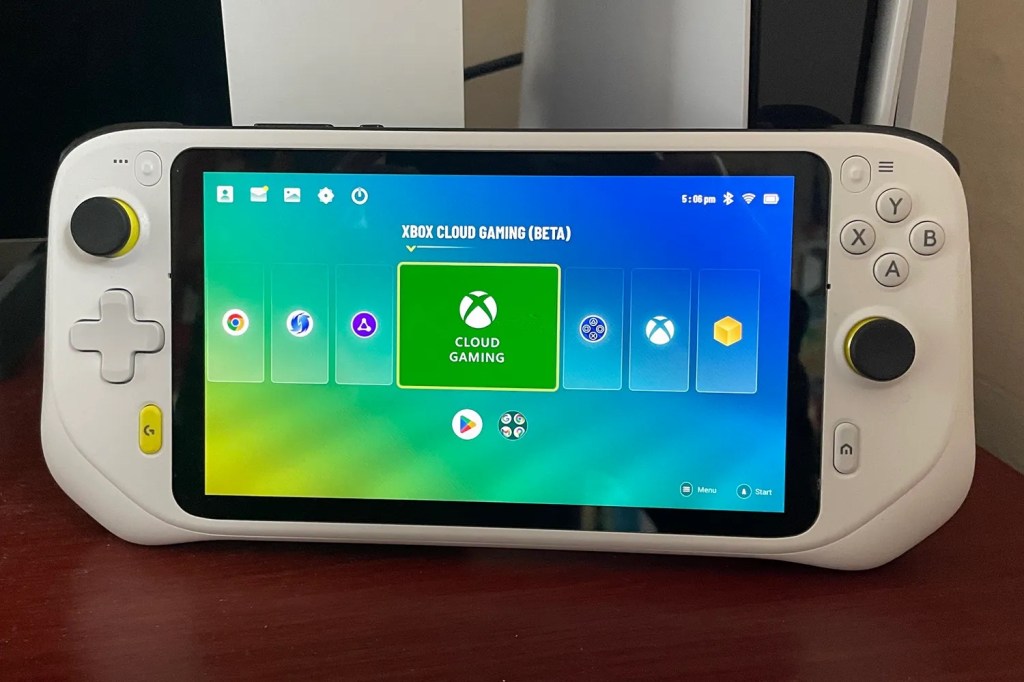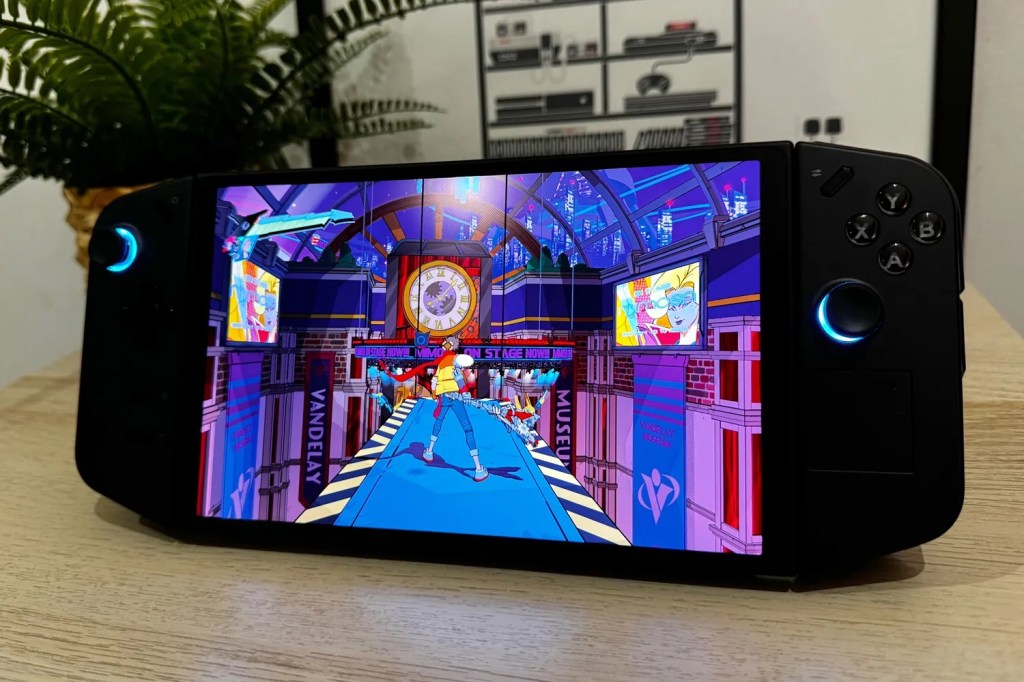I really hope the next Xbox Microsoft makes is a handheld
It's time the PC giant took on the Steam Deck

A few weeks ago, in response to what we now know to have been false rumours that Xbox exclusives like Starfield and the Halo franchise could soon be making their way to other consoles, Microsoft addressed the world in a slightly strange corporate podcast that outlined some of its future plans.
In the “Business Update” podcast, which was considerably less explosive that we were led to believe it would be, it did confirm that a number of previously Xbox-only titles, such as Pentiment and Hi-Fi Rush, were going multi-platform, but this was not a surprise, so the only bit of the podcast that really made my ears prick up was a very brief line towards the end when president of Xbox, Sarah Bond, teased some ‘exciting stuff coming out in hardware’ that she said the company would be sharing this holiday.
While frustratingly vague, this also allows us to speculate and daydream about what said hardware could be. The obvious guess is that we’ll be getting the all-digital redesigned Xbox Series X that featured in last year’s enormous Xbox leak. And likely a nice new controller to boot. But neither of those would particularly interest me as I’m quite happy with the current Series X. What I really, really want Microsoft to give us is a handheld console to rival the Steam Deck and the ever-expanding army of Windows-based handheld PCs coming to market.
The missing X(box) factor

Now, you could make an argument that a handheld Xbox already exists. In fact, you could make an argument that there are loads of handheld Xboxes out there. The likes of the Lenovo Legion Go and Asus ROG Ally can run PC-compatible Xbox games via the Game Pass app, and while this is harder to achieve on the Steam Deck, which runs on a Linux OS out of the box that doesn’t offer a native app for such things, you can get Windows running on Valve’s machine with a little bit of tinkering. And if you can’t be bothered with that, it’s remarkably easy to stream your Game Pass library on the Deck, which you can also do on your smartphone, laptop, tablet, and even on your VR headset. Grab the nearest object to you right now and chances are it’s a handheld Xbox waiting to happen.
Unfortunately, none of the above solutions do the job for me. As a huge fan of the freedom and flexibility that handheld gaming affords you, I want a Microsoft-made handheld Xbox. An Xbox in my pocket, developed by Microsoft, because all the existing devices are flawed. While reviewing the Lenovo Legion Go last year I spent hours playing Game Pass games such as Lies of P and Forza Horizon 5, both of which synced flawlessly with my console save data in the cloud and allowed me to pick up where I’d left off last time I played them on the Series X.
But the big problem with the Legion Go (as well as every other Windows handheld gaming PC out there) is that it runs Windows, which just doesn’t scale at all well to a small-screen controller-controlled interface. You’re constantly running into frustrating issues, and it’s all too obvious that a PC OS has been shoehorned into a device that needs something bespoke.
That’s immediately clear after picking up the Steam Deck, which is a brilliant device for many reasons, but perhaps its greatest strength is SteamOS, the flexible Linux-based operating system that uses a special compatibility layer to get Windows apps running on the hardware. SteamOS is far from perfect, as anyone who has excitedly booted up a game from their childhood only to discover that it simply doesn’t work will know, but as far as providing a console-like user experience on a handheld PC goes, it’s currently without a credible rival. It’s easy to navigate, frequently updated and puts your games front and center.
Which is where Microsoft (hopefully) comes in. The company’s “every screen is an Xbox” approach, which has seen it invest heavily in cloud gaming, is admirable, but for most people streaming games over the cloud is still nowhere near reliable enough to be something you choose to do when you want to play a game. Latency of any kind can completely ruin your mood, as can random mid-game dropouts.
Far more appealing would be a dedicated Xbox-branded handheld that runs on a dedicated Windows-based OS built for smaller screens and navigating with a controller, and one that employs a compatibility layer similar to the one Valve uses with the Steam Deck so you can play all your PC and Xbox games natively, as well every game on Game Pass. And sure, why not let us stream them too, if we want.
The future is in our hands

Devices like the Steam Deck, the Legion Go and the ROG Ally, all three of them no doubt inspired by the success of the Nintendo Switch, have ushered in a new era for handheld gaming, one where you can play AAA games anywhere you like, and while Sony’s PlayStation Portal remote player doesn’t go the whole hog, its very existence (not to mention popularity) is further evidence that this is the direction the industry is heading in. It really is time that Microsoft made its move for a slice of the portable pie. Head of Xbox Phil Spencer is on record as a big advocate of this new era in handheld gaming, so why hasn’t his company got involved yet?
Perhaps it’s biding its time. Battery life is a well documented issue with the current PC gaming handhelds and Microsoft might be shopping around for a custom chip that’s more efficient and lets you play for longer without sacrificing performance. Maybe it’s just happy to keep selling a selection of its first-party games on Steam, many of which get verified for Steam Deck pretty quickly.
But imagine a world in which you could play any Xbox or Windows PC game you own, as well as every Game Pass title, on a handheld built around that very idea, inside and out. Surely then Xbox would become the obvious platform for third-party games until Sony gives us a Vita 2. If any company has the resources to build such a machine, to make good on its pledge to let you access your Xbox games anywhere (and not just when you have a stable wi-fi connection), it’s Microsoft, and right now it looks like the biggest open goal in gaming.
